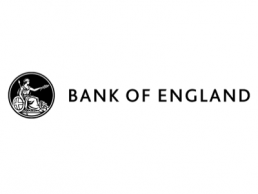2017 Q2 | Bank of England | Meeting Outputs

The Q2 Gender Networks meeting was kindly hosted by the Bank of England on 19th April 2017 and kicked off with a network update from Vanessa Vallely welcoming our new networks and talking about the ways Gender Networks have helped various members over the last few months by matching them up to speakers and partnering organisations to co-run various events and initiatives.
Vanessa shared a preview of the Gender Networks Survey results that have been analysed by PwC and will be available for full review at the next Gender Networks meeting in July.
In the news was presented by Harriet Minter and featured headlines such as:
Of 300 soon-to-be fathers interviewed about taking paternity leave, half said they didn’t intend to. Of these, a third cited financial reasons – although this isn’t actually the case – and the motivations of the rest weren’t known.
Gender pay gaps:
- Google continues to refuse to publish their gender pay gap in the US, and the Department of Labour is taking them to court. In the UK, any company not publishing won’t be fined (the fine had been a paltry £5k) but will be named and shamed.
- A show of hands at the GN meeting suggested that around 50% of the organisations represented already do publish or are planning to do so.
- Based on pay gap data, the ‘motherhood tax’ on income appears to be around 3% per child.
- Pay gaps are significantly wider for women of colour.
Our guest speaker for the morning was Sophie Walker – Leader of the Women’s Equality Party who was pumped after the announcement of the impending snap election.
Sophie spoke passionately about the Womens Equality party which was born out of frustration during the 2015 general election – being presented with a binary choice, and of parties who put women’s choices and experiences at the backs of their manifestos.
Creating politics specifically for women creates a society and economy that works much better for everyone. WEP believes that women’s equality is definitely do-able, by lifting the structural barriers against women. WEP works to achieve the following:
- An equal education system. Cease categorising boys and girls for different subjects, and gendered role models for all jobs/professions.
- Valuing care and carers. Explode the myth that equality and social justice have no part in a functioning economy. When we pay/value carers we liberate women. Social care is worth £84bn pa in the UK. We have 5 million unpaid carers in the UK, contributing £77bn of economic uplift. The Government’s £23bn for infrastructure spending is largely for men’s jobs. Putting this into caring system would create so many more jobs, and these would mainly be for women.
- Closing the gender pay gap. The pay gap is the result of occupational segregation that forces women into jobs that are less well paid. Also by forcing women into caring roles, and not paying them. We must look at pay gaps for women of different backgrounds. Companies should also publish pay gap data for the people in the intersections of diversity groups, and retention rates before and after maternity leave.
- Equal representation. Myth-busting is needed around the subject of quotas. They work, and we’re tired of waiting. Two high priority areas for change are:
- Parliament – we could have 50:50 MPs in two elections if put up two-thirds female candidates in seats with older white male incumbents
- Running the media
- Ending violence against women and girls. Two women a week are murdered by their partner of former partner. Sexual harassment in schools must be tackled.
- Equal healthcare. Recognition of the need for policies in the workplace to manage women’s needs around managing periods and menopause. Also, scientific research that doesn’t treat women as the anomaly; the vast majority of animal-testing done on males, to avoid hormonal ‘interference’!
Women are paying for austerity. 86% of the cuts of recent years is paid by women in changes to tax, social security, etc. Social policy must be part of Brexit negotiations and policy-making.
General elections allow the parties to present their best versions, whereas snap elections show parties as they really are. The media will present 8th June as a binary choice between right and left. When asked if WEP is considering a left alliance, Sophie replied that they are already working with other parties, eg with the Green party on the Article 50 amendment. Also with Lib Dems. In a sense, the main aim of WEP is to force all parties to push gender inequality up their agendas. WEP will field candidates, but will be very strategic about where; they’re aiming for maximum impact – both vote winning and for other parties’ candidates to address the issues.
When asked if use of ‘Women’ in the name risked putting off both women and men, Sophie replied that we must tackle the inequality that’s holding the country back. Men are joining the party; men who have daughters, and young millennial men who are hugely unimpressed by the traditional options, including the expectations of men.
Our Charity spot for the day went to a fabulous charity called The Eve Appeal
The Eve Appeal is a UK charity, addressing the inequality in cancer research and care. In fact, it is the only UK national charity raising awareness and funding research in the five gynaecological cancers – ovarian, womb, cervical, vaginal and vulval. They were set up to fund research focused on developing effective methods of risk prediction, earlier detection and developing screening for these women-only cancers. Their core research team, the Department of Women’s Cancer, is based at University College London (UCL), but their work extends over 31 institutions across 15 countries. As well as providing seed funding, core infrastructure funding and project funding the Eve Appeal also seeks to normalise conversations around periods, smear tests, menopause. By raising awareness, and enabling conversations they aim to get more women to visit their GPs for tests on a regular basis. One current initiative is the development of a risk prediction kit.
Click to access the meeting outputs
Click here to view the network hacks from this meeting
Save

